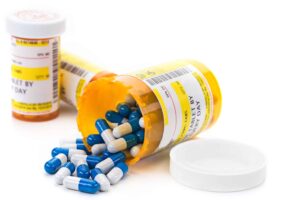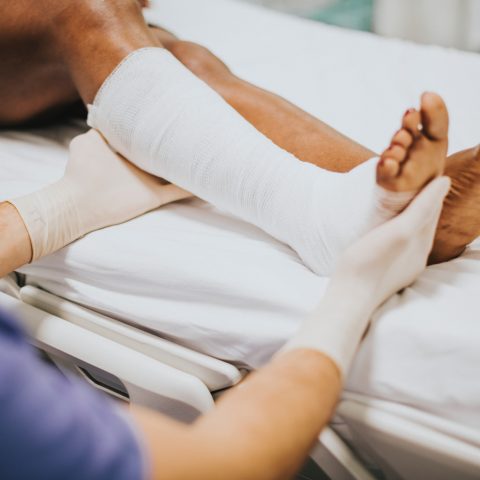
When your doctor prescribes you a certain medication, you trust that it will help you, not harm you. However, many drugs can be hazardous and possibly deadly when medical negligence causes medication errors. A careless doctor may prescribe the wrong drug for your condition, a nurse may administer an incorrect dose or a pharmacist may make mistakes when manufacturing pills. Depending on the nature of the error, you may suffer negative effects as your illness or condition worsens, and you may sustain additional injuries from the wrong medication as well. Medication errors can also have a profound emotional and psychological impact, as those you trusted to help you instead caused injuries or a loved one’s wrongful death.
A serious medication error can make you and your family feel hopeless. However, Maryland medical malpractice lawyer Susan R. Green founded Hardball Law to offer hope to victims of negligence such as this. You can trust that she will fight aggressively to hold careless doctors, pharmacists and other medical professionals accountable when their thoughtlessness has catastrophic consequences for those they had a duty to heal.
What are the Most Common Types of Medication Errors?
A medication error may occur due to negligence by anyone involved in the production, prescription or dispensation of drugs. Some of the most common examples include:
- Prescription of the wrong medication. A doctor may prescribe the entirely wrong drug for a given condition after making a misdiagnosis. Alternatively, a pharmacist may misread a prescription or give out the wrong drugs due to carelessness. In some cases, prescription of an incorrect and dangerous medication may occur due to misleading advertisement or lack of warning labels from pharmaceutical companies.
- Incorrect dosage. Even the correct drug can cause serious harm in incorrect doses. Pharmacist errors may result in medications that contain much more or less of the active ingredients than the label indicates. A doctor may also prescribe a dangerously high or low dose of a given drug, or a nurse may make mistakes when administering injections. In these situations, a low dose can have negative consequences, as the patient’s condition may go untreated. However, the more serious danger is accidental prescription overdose, which can be deadly.
- Administering a drug to the wrong person. Hospital negligence or pharmacist errors may result in a patient receiving a drug that was meant for someone else. Understaffing, overwork and poor training may contribute to these errors.
- Dangerous drug combinations. Doctors and pharmacists must check a patient’s history and current medications to ensure that a new prescription will not interact poorly. Additionally, pharmaceutical companies must include labels on drugs warning doctors of any dangerous combinations.
- Lack of proper directions. Pharmacists and doctors should warn patients of the proper procedure for taking a drug. For example, some medications work most effectively when taken with food.
Who is Liable for Injuries from Medication Errors?
Depending on the circumstances, multiple parties may be legally responsible for the injuries and damages that result from medication errors. In general, possible liable parties can include:
- Prescribing doctor. If a physician prescribes the wrong drug or dosage due to misdiagnosis or any other negligence, then you may have grounds for medical malpractice lawsuit against that doctor.
- Nurses and other medical workers. Improper dosage and other errors in administering a drug may result from medical negligence on the part of nurses and other medical professionals.
- Medical institutions. If medication errors occur in hospitals, nursing homes or other facilities, the institution itself may be liable for the damages. For example, if the nurse who administered an incorrect dose of your medication works for a hospital, then you may be able to collect compensation from the hospital.
- Pharmacists. A pharmacist and/or the pharmacist’s employer may be liable for dosage errors and other mistakes that cause drug-related injury.
- Pharmaceutical companies. Lawsuits against drug companies typically involve dangerous drug defects. However, these companies may also be liable for medication errors if improper labeling or misleading advertising caused the error.
Finding the underlying cause of a medication error may be difficult. Hospitals, doctors and pharmacists rarely admit to making mistakes, and victims and/or their families generally do not have the medical expertise necessary to recognize an error. As a Maryland medical malpractice attorney, Susan Green works with medical experts who can investigate your injury and determine the cause. While you focus on recovering, she can fight to hold the negligent parties accountable for your injuries.
Hurt by a Prescription Error? Contact an Attorney Handling Medication Errors
Doctors, pharmacists and other medical professionals have a responsibility to take reasonable care when producing, prescribing and administering drugs. Baltimore medication error attorney Susan R. Green stands up for victims and their families when these workers neglect their responsibility. She can fight by your side, no matter how intimidating the legal battle may seem. Contact Hardball Law today to schedule your free initial consultation.





